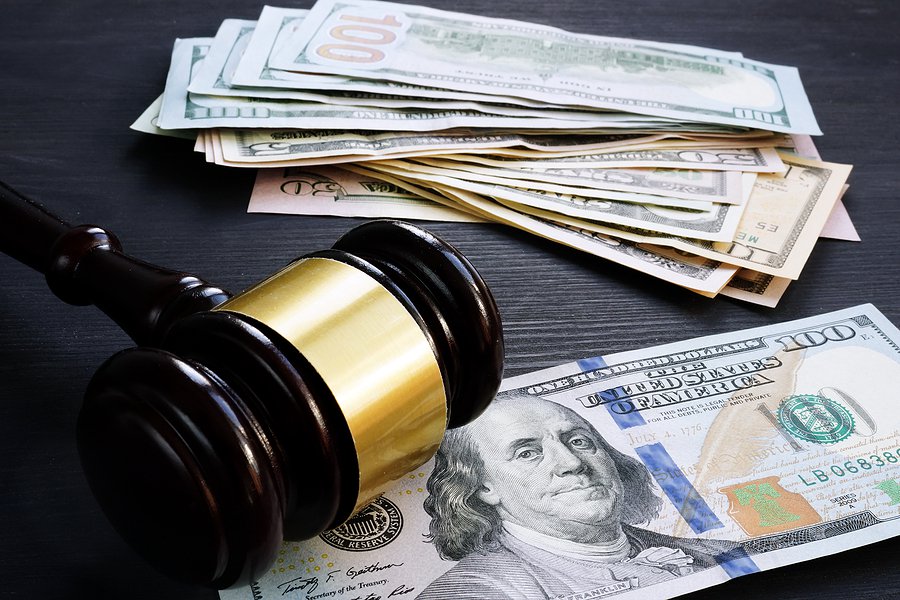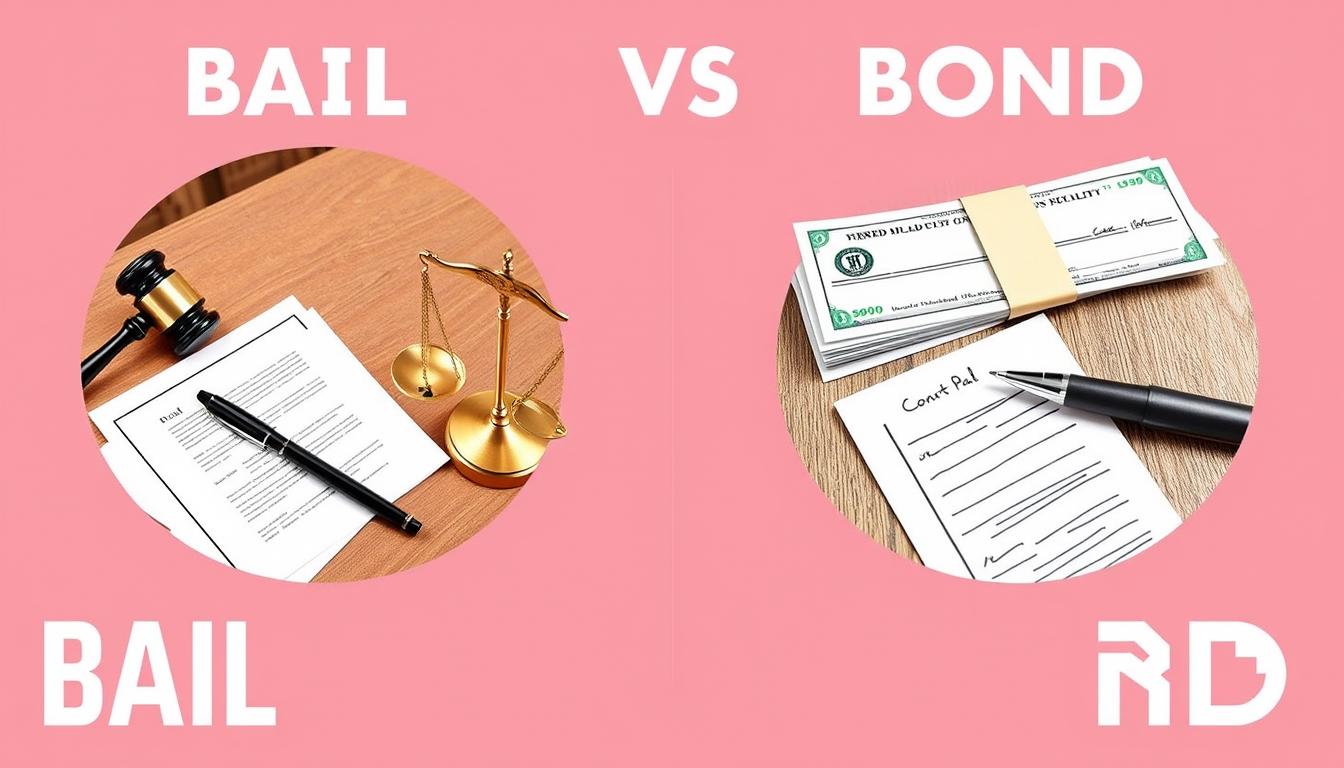Learning About How bail bonds Work and What You Should Expect
Comprehending the Refine of Safeguarding a Bail Bond: What You Required to Know
Protecting a bail bond can be a complex process. It involves recognizing various aspects, from the sorts of bonds offered to the linked prices. People frequently neglect essential details that can impact their circumstance. The steps to obtain a bail bond need careful consideration and understanding of obligations. As the procedure unfolds, crucial choices should be made that can impact the end result substantially. What should one prepare for when traversing this challenging landscape?
What Is a Bail Bond?
A bail bond is a monetary contract that enables a jailed individual to be released from guardianship while awaiting test. This arrangement includes a 3rd party, generally a Bail bondsman, that ensures the court that the person will certainly return for their scheduled court appearances. In exchange for this solution, the Bail bondsman generally bills a non-refundable fee, often a percentage of the total Bail amount.
Bail bonds serve a vital function in the legal system, giving a mechanism for defendants to keep their freedom throughout the pre-trial stage. This can aid them plan for their protection much more properly. The Bail amount is identified by the court based upon numerous aspects, consisting of the severity of the infraction, the accused's criminal background, and the threat of trip. Eventually, a bail bond stands for a dedication to maintain lawful responsibilities while enabling individuals the chance to proceed their day-to-day lives until their court day.
Exactly How Bail Bonds Job
Bail bonds run via a straightforward process that includes several crucial steps. An offender or their depictive calls a bail bond representative after an apprehension. The agent evaluates the scenario, including the Bail quantity established by the court and the offender's history. Once a decision is made, the agent usually requires a non-refundable charge, usually a percent of the overall Bail quantity, usually ranging from 10% to 15%.
After the fee is paid, the representative secures the Bail by signing a contract with the court, making certain that the defendant stands for all arranged court days. If the defendant fails to appear, the bail bond representative is accountable for the complete Bail quantity, leading the representative to seek out the offender. Throughout this process, the bail bond representative plays a necessary function in assisting in the release of the accused while managing the connected monetary dangers.
Kinds Of Bail Bonds
Understanding the various kinds of Bail bonds is necessary for accuseds and their family members as they navigate the lawful system. There are several common kinds of Bail bonds available, each offering a certain purpose.
One of the most common is the surety bond, which entails a Bail bondsman ensuring the full Bail amount for a charge. An additional type is the money bond, where the defendant or their household pays the full Bail quantity in money directly to the court.
Home bonds permit people to make use of property as collateral for the Bail quantity. In addition, federal bonds are certain to government cases, usually calling for a greater costs and much more stringent conditions.
Ultimately, migration bonds are utilized in instances concerning migration infractions. Each kind of bond has distinctive procedures and implications, making it essential for those entailed to comprehend their options completely.
The Expenses Involved in Protecting a Bail Bond
Securing a bail bond requires numerous expenses that can substantially influence a defendant's finances. The major expense is the premium, generally ranging from 10% to 15% of the total Bail amount set by the court. This costs is non-refundable, no matter of the case result, standing for the bail bond agent's charge for their solutions. Additional costs may include management charges, which some representatives impose for handling paperwork, and security needs, where the defendant may require to supply possessions to safeguard the bond. In instances including greater Bail quantities, the demand for collateral becomes extra pronounced. bail bonds. Offenders must be conscious of possible expenses related to missed court dates, which can lead to additional economic fines. Understanding these expenses is important for accuseds and their families, as they can greatly affect the monetary worry related to protecting a bail bond
The Process of Acquiring a Bail Bond
The procedure of getting a bail bond entails a collection of organized steps that begin with the entry of an application. Applicants need to also take into consideration various settlement and collateral alternatives that may be needed by the bail bond agency. Recognizing these parts is essential for maneuvering this page with the bail bond system properly.
Application Entry Steps
Maneuvering the application submission actions for getting a bail bond can be uncomplicated when people are educated. The initial action involves choosing a respectable bail bond firm, which frequently requires research and recommendations. When a business is selected, the applicant has to finish a bail bond application, giving vital info such as the defendant's information, costs, and Bail amount. Next, the candidate may need to existing identification and any kind of relevant paperwork to sustain the application. After submitting the application, the bail bond firm will evaluate the information and analyze the danger involved. A representative will detail the terms and conditions before settling the contract if accepted. This process, while organized, can vary somewhat depending on the territory and the Bail bond company.

Payment and Collateral Alternatives
When getting a bail bond, comprehending settlement and collateral alternatives is important, as these factors can considerably impact the total expense and terms of the agreement. Generally, bail bond business call for a non-refundable cost, usually a percentage of the complete Bail quantity, which functions as their profit. Some companies might offer flexible layaway plan, enabling clients to pay in installations. In addition, collateral can be needed to protect the bond, which might consist of possessions like residential or commercial property, vehicles, or various other prized possessions. The kind and value of security can affect the bond's approval and terms. Customers must meticulously assess their financial situation and alternatives to ensure they select an option that lines up with their budget plan and circumstances.
Obligations of the Indemnitor
Guiding with the complexities of Bail bonds calls for a clear understanding of the responsibilities of the indemnitor. The indemnitor, usually a family member or close friend of the accused, plays a significant function in the Bail process. This individual accepts assume monetary responsibility, making sure that the Bail amount is paid if the offender falls short to appear in court. It is essential for the indemnitor to keep communication with the bail bond agent throughout the procedure, supplying any necessary information and updates regarding the accused's situation.
Furthermore, the indemnitor must protect security, which might consist of residential or commercial property or prized possessions, to back the bail bond. This security protects the bail bond firm against prospective losses - bail bonds. Should the defendant fall short to conform with court requireds, the indemnitor faces the danger of shedding their security and may be held responsible for the entire Bail quantity. Because of this, recognizing these responsibilities is vital for the indemnitor's economic stability

Typical Misconceptions Concerning Bail Bonds
Numerous individuals harbor mistaken beliefs about Bail bonds, which can complicate their understanding of the Bail procedure. One widespread misconception is that Bail bonds bail for murder are a kind of payment that ensures a defendant's launch. Actually, they are a guarantee to the court that the accused will certainly stand for their arranged hearings. An additional typical belief is that only well-off people can afford Bail. Nonetheless, bondsman commonly charge a percent of the overall Bail amount, making it easily accessible to a broader array of people. Furthermore, some individuals assume that Bail is refundable. While the premium paid to the Bail bondsman is not refundable, the Bail quantity itself may be returned upon the conclusion of the instance, provided the offender fulfills all court demands. Dispelling these myths is essential for people going across the complexities of the Bail system and guaranteeing they make informed choices.
Regularly Asked Questions
Can I Protect a Bail Bond for Someone in One More State?
Safeguarding a bail bond for somebody in an additional state is feasible, yet it normally calls for dealing with a bondsman accredited in that state - bail bonds. Each territory has certain policies that must be adhered to throughout this procedure
What Occurs if the Accused Skips Bail?
If an offender skips Bail, a warrant is generally issued for their apprehension. The Bail bondsman might also go after healing initiatives, which can involve working with bounty hunters to nab the individual and find.
Are Bail Bondsmen Managed by the Government?
Bail bondsmen are certainly controlled by government authorities. Rules differ by state, yet they typically require licensing, adherence to economic practices, and conformity with regulations to assure fair treatment of accuseds and their family members.
Can I Use Collateral Besides Money?
Security aside from money can often be used for Bail bonds, relying on the bondsman's plans. Common choices include residential or commercial property, automobiles, or other valuable the original source assets, which need to typically be evaluated and set.
What Is the Function of a Co-Signer in a Bail Bond?
If the accused falls short to appear in court, the duty of a co-signer in a bail bond is to assure repayment. This individual approves economic obligation, making certain that the bail bond agreement is supported and enforceable.
If the defendant falls short to appear, the bail bond agent is accountable for the full Bail amount, leading the agent to look for out the accused. As soon as a business is chosen, the candidate has to finish a bail bond application, offering vital details such as the accused's information, costs, and Bail amount. Commonly, bail bond firms call for a non-refundable cost, generally a percent of the complete Bail amount, which serves as their revenue. Lots of people nurture misunderstandings regarding Bail bonds, which can complicate their understanding of the Bail procedure. Security other than cash money can typically be used for Bail bonds, depending on the Bail bondsman's plans.